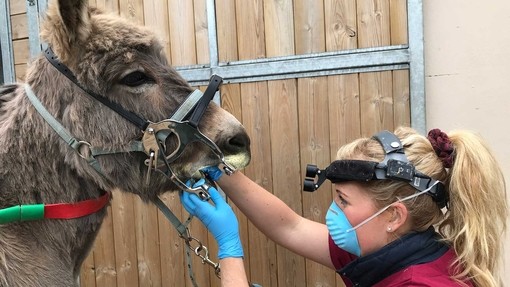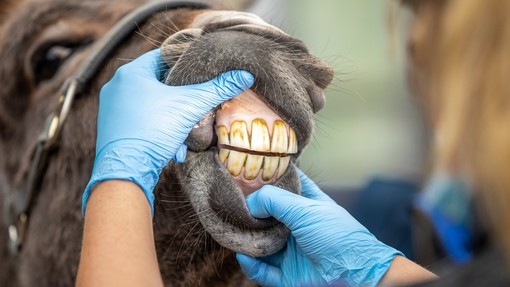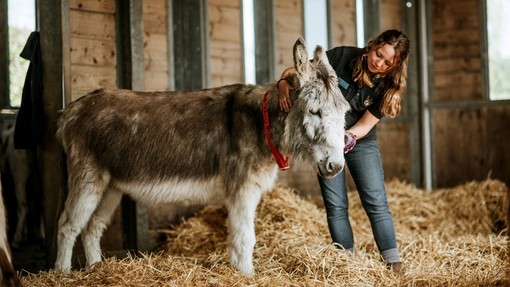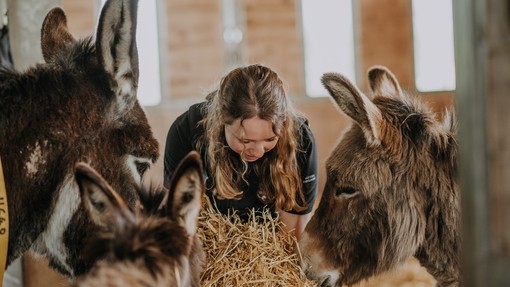How to care for your donkey's teeth
Prevention is key to maintaining healthy teeth, have your donkey’s teeth checked regularly by a vet or equine dental technician (EDT).
- If you have a donkey foal, their teeth will erupt in the first few weeks of life. Have their teeth checked early on to identify any serious problems.
- Young donkeys should have their teeth checked twice a year until they have developed a full set of adult teeth. Many changes can happen to the mouth during this period.
- If you have an adult donkey, have their teeth checked once or twice a year, depending on the condition of their teeth. If you are unsure, your vet or EDT will be able to advise you.
- If you have a geriatric donkey, have their teeth checked more regularly. Certain dental conditions become more common with age.
How to spot problems with your donkey's teeth
Watching for signs will help you identify dental problems at an early stage. If your donkey becomes reluctant to eat, it may be because they are associating eating with pain. Problems with picking up food and chewing can lead to weight loss because your donkey is not be getting the nutrients they need.
Signs of dental problems include:
- behavioural change
- slow or intermittent eating (sometimes complete reluctance or inappetence)
- weight loss
- difficulty chewing, or dropping balls of food (‘quidding’)
- difficulty grazing
- excessive saliva (drooling)
- strong-smelling mouth
- discharge from the nose (thick snot)
- colic.
Remember, donkeys are very stoic. You may see no signs at all, even with severe dental disease. If you notice any signs of dental disease, speak to your vet or EDT for advice.
Checking your donkey's teeth
Your vet or EDT will need to use a ‘gag’ to check your donkey’s teeth. Many donkeys tolerate a gag well, but some may be nervous and require calm handling and patience.
Your vet or EDT will open the gag until it is wide enough to allow them to look inside your donkey’s mouth with a head torch. They may need to flush out bits of food with water to help them see.
Your vet or EDT will need to feel your donkey’s teeth for sharpness or irregularity. If any teeth are sharp and causing problems, they may rasp (file) them to remove the points.
If there are any concerns or other conditions, an x-ray or additional treatment may be necessary. Your vet or EDT will explain the treatment plan and the associated costs of treatment.
Dental treatments are much more effective when carried out at regular intervals.
Common dental conditions for donkeys
Some common conditions seen in donkeys are included here, but this list is by no means exhaustive:
- sharp points on the teeth (‘overgrowths’)
- diastema (gaps between teeth where food can become trapped)
- periodontal disease (gum disease)
- missing teeth
- fractured (broken) teeth.




